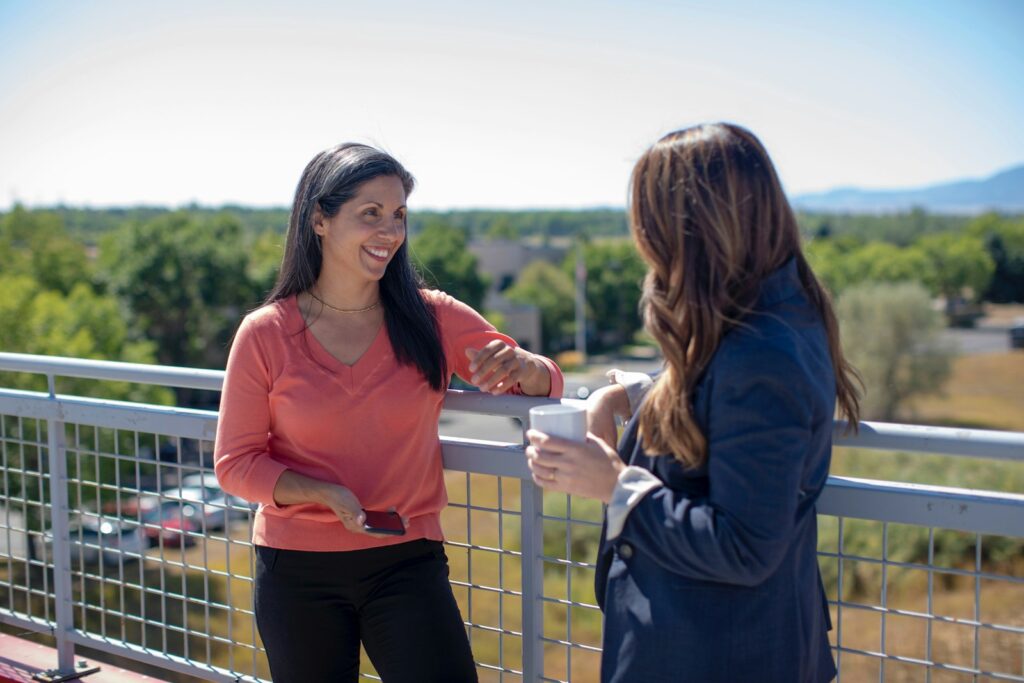Lifestyle
15 Signs You’re Not as Open-Minded as You Think

Everyone likes to believe they’re open to new ideas, but being open-minded isn’t about saying the right things or nodding along. It’s about how you react when something challenges your views, your habits, or your comfort zone. Sometimes, the signs are small. You shut something down before it has a chance to land. You avoid conversations that stretch you. And without realizing it, you might be more closed off than you think.
You avoid people who disagree with you.

If someone thinks differently, you pull away—or tune them out before they finish talking. It doesn’t feel like fear. It just feels easier. Less draining. But that distance can keep you stuck in a loop. You don’t grow if you’re only surrounded by opinions you already agree with. Being open-minded means sitting with disagreement, not escaping it every time, it makes you tense.
You always need to be “right.”

You don’t shout people down, but you keep score. You think of comebacks instead of listening. If someone points out a flaw, your instinct is to explain it away, not consider it. That might feel like confidence, but it’s often discomfort hiding under control. Open-minded people don’t chase being right. They want to understand—even when it proves them wrong.
You dismiss things as “not for me” too fast.

Someone suggests a book, a dish, a movie, a hobby—you barely let them finish before saying, “Nah, not my thing.” It doesn’t feel rude, but it cuts things off before you’ve even thought about it. Being open-minded doesn’t mean you have to like everything. It means you’re willing to try before you decide. If the answer is always no, that’s a sign you’re stuck.
You only talk to people you agree with.

You like smart discussions, but somehow, they all end in agreement. Your group chats, your dinner conversations—they’re mostly made up of people who see things your way. That doesn’t happen by accident. It happens when you stop reaching out to people who challenge you. Comfort isn’t the same as growth, and too much of it can turn into a quiet kind of bias.
You frame new ideas as “wrong” before hearing them.

The minute someone says something that feels off, your brain shuts the door. You don’t say it out loud, but the decision’s already made. You’re not curious. You’re just waiting for your turn to speak. It’s not always aggressive—it’s automatic. And that’s the problem. Being open-minded isn’t about being polite. It’s about staying curious long enough to actually hear what’s being said.
You think “listening” means waiting for your turn.

You nod, you let people finish—but inside, you’re loading a response. You’re not taking in their words. You’re building your case. That’s not listening. That’s performance. Being open-minded means holding space for someone’s view, even when it rubs against yours. If your goal is to win the exchange, not understand it, you’re not really listening at all.
You get uncomfortable when someone’s different.

It’s subtle. Someone dresses differently, speaks differently, or has a background you don’t understand—and suddenly, you’re off balance. You keep it polite, but you feel yourself pull back. Open-mindedness isn’t just about ideas. It’s about people. If the difference makes you uneasy, it’s worth asking yourself why. That reaction has more to do with fear than values.
You rarely change your mind.

You form an opinion and stick to it—even when new info comes in. It feels like strength, like being grounded. But staying fixed isn’t always wise. Open-minded people update what they believe when something better comes along. If you’re still holding onto ideas you formed five or ten years ago without question, it might be time to check in with yourself.
You turn opinions into identity.

You don’t just have beliefs—you build your personality around them. A shift in opinion feels like losing a part of yourself. That’s heavy. It also keeps you from growing. Open-minded people can change their views without crumbling. They don’t confuse ideas with identity. If every challenge feels personal, it’s harder to move forward when something no longer fits.
You assume your way is the best.

You’ve got your routines, your values, your way of seeing things—and they make sense to you. But when someone else lives differently, it feels like they must be missing something. You don’t mean to judge, but it leaks out in small ways. Open-mindedness means stepping out of your own frame and realizing there are other ways to live that work just as well.
You avoid hard conversations.

You don’t want drama. So you skip it. Change the subject. Make a joke. And that might keep things light, but it also keeps things shallow. Open-mindedness doesn’t always feel good. It means staying present when the conversation gets hard. If you keep ducking out when things get real, it might be time to ask why.
You see pushback as disrespect.

If someone questions your view, it feels like they’re challenging you as a person. You get defensive, even if they’re calm. But disagreement isn’t always an attack. Sometimes, it’s the start of something important. Being open-minded means recognizing that not every challenge is criticism. It’s a chance to dig deeper, not a reason to shut down.
You think experience equals expertise.

You’ve “been there,” so you assume you understand it fully. You forget that two people can go through the same thing and come away with totally different lessons. Open-minded people don’t let their own experience erase someone else’s. They stay open to the idea that their version isn’t the only one that counts.
You use humor to shut things down.

When something feels off or uncomfortable, you joke. You say, “Well, I’m just old-fashioned,” or “Guess I’m the weird one.” Everyone laughs, the moment passes, and nothing gets examined. It feels harmless. But over time, humor can become a wall. Open-minded people don’t deflect every uncomfortable idea. They pause. They sit with it. They don’t need a laugh to escape it.
You need things to feel familiar.

You travel to places that speak your language. You eat food that feels close to home. You hang out with people who share your background. There’s nothing wrong with comfort—but it shouldn’t be a requirement. If you can’t sit in unfamiliar spaces without shrinking, your openness has limits. The goal isn’t to chase discomfort but to stop fearing it.

